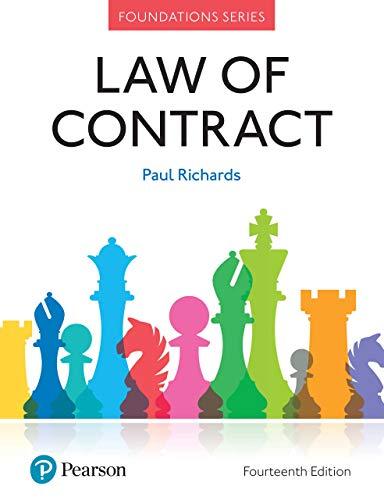Question
Such questions are connected with legal ethics, but I am not so familiar with that. Could you please explain that to me? You recently became
Such questions are connected with legal ethics, but I am not so familiar with that. Could you please explain that to me?
You recently became a member of the bar. You are a few months into your first job, at the Office of Legal Counsel in the U.S. Department of Justice. Your client is the executive branch of the federal government. A federal statute makes clear that the state ethics rules, based on the ABA Model Rules, apply to your conduct. Shortly after you began your job, terrorists used hijacked planes to attack the World Trade Center in New York and the Pentagon. The CIA captured many, including al Qaeda member Abu Zubaydah. Holding him a secret prison in Thailand, CIA officers sought to interrogate him about the organization's plans. Believing that he had refused to cooperate, the CIA wanted to use harsher interrogation techniques on him. But some in the CIA worried that these techniques might subject the interrogators to criminal liability under 18 U.S.C. 2340A, which provides, "whoever outside the United States commits or attempts to commit torture shall be...imprisoned for not more than 20 years....and if death results...shall be punished by death...". The president's national security advisor authorized the use of harsher interrogation techniques but wanted a determination that the use of those techniques was legal. At a meeting facilitated by the legal advisor to the president's national security advisor, the acting general counsel of the CIA asked the Department of Justice to prepare a memorandum analyzing whether the use of "harsh" interrogation techniques would be criminal under the law prohibiting torture. Pat Farrell is a senior official at the Office of Legal Counsel. Farrell supervises you and your co-worker, Barry McKee, who is assigned to be the principal drafter of the memo. You a e assigned to review and edit McKee's draft before sending it to Farrell. The White House Counsel took a personal interest in this project saying that he wanted the memo to be "forward-leaning," and wanted to take risks. Farrell echoed this advice. They wanted the memo to protect CIA officials from any future prosecutions. The memo that you and McKee are to write is the only obstacle to the use of interrogation techniques that the administration has already approved, subject to the Justice Department's legal opinion. McKee's research revealed the following information: a. Congress enacted the federal criminal statutes banning torture, quoted above, to bring the U.S. into compliance with the International Convention Against Torture. b. The federal criminal law is not the only law mentioning severe pain and suffering. The federal Medicare statute also addresses severe pain and suffering although for a much different purpose. It requires hospitals to provide emergency medical care when a person requesting medical attention has "acute symptoms...such that a prudent layperson ....could expect [the absence of treatment to lead to] serious impairment of bodily functions or serious dysfunction of any body organ or part."
c. The Supreme Court's leading case on separation of powers, the Steel Seizure Case, is widely interpreted to stand for the proposition that the president's constitutional powers as commander in chief are at their lowest ebb when he acts contrary to a valid act of Congress. d. The Constitution grants Congress the power to define "offenses against the Law of Nations...make Rules concerning Captures on Land and Water...and make Rules for the Government and Regulation of the land and naval forces." McKee gave you his draft memorandum, mentioning that he was sure it will please Farrell and White House Counsel. The memo interprets the anti-torture law in light of the Medicare statute and concludes that the anti-torture statute only applies where an interrogator specifically intends to cause the extreme pain that would be associated with organ failure and death. Although this interpretation strikes you as a strained use of Medicare law (including that the law was passed for different purposes) it seems like the "forward-thinking" interpretation that White House Counsel wants. At the very least, the memo would give interrogators a plausible defense of "acting on the advice of counsel". The memo also makes a second argumentthat the anti-torture statute might be unconstitutional if it interferes with the president's power as commander in chief. The memo does not mention the Steel Seizure Case, which would undercut the administration's desire to move forward with harsher interrogation techniques.
Questions:
1. Who is your client? 2. What should you do? 3. Do you have an ethical obligation to redraft the memo or qualify the legal analysis? 4. If you think the methods of interrogation that the CIA wants to use would not be criminal but would be morally wrong or could lead to adverse foreign policy consequences for the United States, would you add those unsolicited and probably unwelcome opinions to the memo?
Step by Step Solution
There are 3 Steps involved in it
Step: 1

Get Instant Access to Expert-Tailored Solutions
See step-by-step solutions with expert insights and AI powered tools for academic success
Step: 2

Step: 3

Ace Your Homework with AI
Get the answers you need in no time with our AI-driven, step-by-step assistance
Get Started


